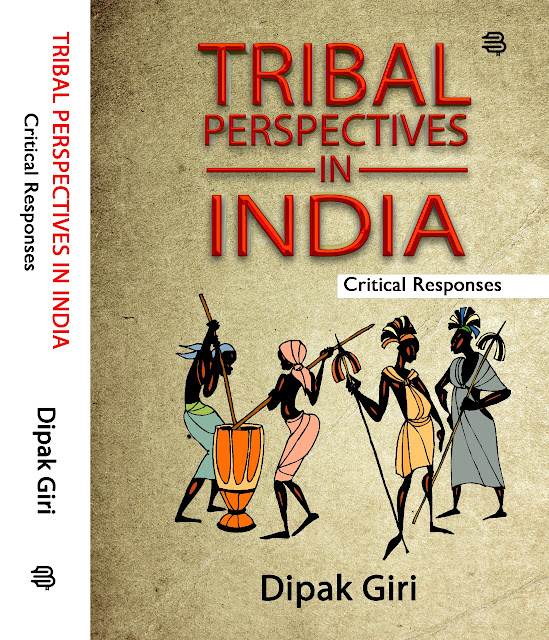Gender Perspectives in Indian Context: Critical Responses
✍ Dr. Dipak Giri is an Indian writer, editor and critic who lives in Cooch Behar, a district town within the jurisdiction of state West Bengal, India.
Perspectives on Indian Dalit Literature: Critical Responses
Perspectives on Indian Dalit Literature: Critical Responses
Woman-Nature Interface: An Ecofeminist Study
Woman-Nature Interface: An Ecofeminist Study
FOREWORD
Writing a foreword
is a tricky enterprise, especially on a book like Woman-Nature Interface: An
Ecofeminist Study. Now, we have to begin somewhere and I would like to
quote a few sentences from Adrienne Rich’s book On Woman Born: Motherhood as
Experience and Institution. She outlines the, “simple idea that women
are as intrinsically human as men, that neither women nor men are merely the
enlargement of a contact sheet of genetic encoding, biologically givens.
Experience shapes us, randomness shapes us, the stars and weather, our own
accommodations and rebellions, above all, the social order around us”.
Dipak’s book does just that. The
collection of essays focuses on studies on ecology with emphasis on global
perspectives and environmental activism, apart from woman centered narratives
in select female novelists and in other narratives, like ballads of Bengal. The essays focus on diverse authors like
Katherine Mansfield, Sarojini Naidu, Kamala Das, Anita Desai, Roy and several
others. However, the nexus between nature and woman had been the focus of
ancient Indian literature as is shown in the study of Kalidasa’s Shakuntala. Whereas the character of
Shakuntala has been sketched from a natural perspective, Shakespeare’s plays
like The Tempest and The Taming of the Shrew analyse the
woman as well as nature from a male point of view. Such literature has been aptly
substantiated by articles on ecofeminism and environmental movements in India
and Pakistan in agricultural and economic sectors. There is also a return to
historical narratives as well as a fresh insight into the nature versus culture
debate within the context of rapid globalization.
Finally, the author- cum- editor
has been quite proficient in recent years with the publication of several books
on Indian writing, especially novel and drama within the ambience of
postcolonial studies. Collected editions on gender studies, diasporas,
homosexuality and transgender issues have been edited by him.
This book on Woman Nature Interface
illustrates how woman centered narratives can be contextualized within the
parameters of ecology and environment. The role of the woman becomes amplified
in the dialectics between nature and culture. The editor has aptly summarized
the rationale of the book in his introduction where he writes that ecology and
the woman are burning issues today. The message, which the book conveys can be
paralleled by an observation from Vandana Shiva, where she says that the
liberation of the earth, the woman, as well as humanity is a step towards
freedom and peace. Let us read this book.
Soumyajit Samanta
Retired Professor
North Bengal University
West Bengal
Immigration and Estrangement in Indian Diaspora Literature: A Critical Study
Immigration and Estrangement in Indian Diaspora Literature: A Critical Study
on
Gender and Marginality in Mahesh Dattani's Drama: Text and Context
Gender and Marginality in Mahesh Dattani's Drama: Text and Context
Available
on
Name: Dipak Giri
Date of Birth: 07/03/1984
Place of Birth: Cooch Behar, West Bengal, India
Profession: Writer, Editor, Researcher and Teacher
Nationality: Indian
Education: Ph. D. in English from Raiganj University
Dipak Giri, Writer, Editor, from Cooch Behar, a district town within the jurisdiction of state West Bengal, India, is an acclaimed name in the field of academic and creative writings. He is the editorial chief of "Creative Flight: An International Half-Yearly Open Access Peer- Reviewed E-Journal in English". Professionally a
Teacher and passionately a writer, he has published a vast number of books in both national and international platforms. Presently he has been assigned with many
academic and research activities. He is the Peer Reviewer of Vernon Press, Wilmington, U.S.A., The
International Research Journal of Applied Linguistics and Literary Studies,
Continuing Proficiency Development Institute, Bangkok, Thailand and the Editor
of the Litinfinite- Scholarly Bi-Yearly Open Access Journal, Kolkata, West
Bengal, India. His area of studies includes Indian English Literature, Subaltern Studies, Queer Studies, Gender Studies and Feminism. Few of his edited books
which have earned high acclaim for him, are:
Indian English Drama: Themes and Techniques, Indian English Novel: Styles and Motives, Postcolonial English Literature: Theory and Practice, Indian Women Novelists in English: Art and Vision, New Woman in Indian Literature: From Covert to Overt, Homosexuality in Contemporary Indian Literature: Issues and Challenges, Transgender in Indian Context: Rights and Activism, Gender and Marginality in Mahesh Dattani’s Drama: Text and Context, Immigration and Estrangement in Indian Diaspora Literature: A Critical Study, Woman-Nature Interface: An Ecofeminist Study, Same Sex Desire in Present India: An Anthology of Literary Texts and Contexts, Perspectives on Indian Dalit Literature: Critical Responses and Tribal Perspectives in India: Critical Responses
In 2020, the Journal of Commonwealth Literature, an international journal of repute, published by Sage, U.K. has looked upon his works as worthy of being included in the Indian section of "The Bibliography of Commonwealth Literature".
Book Releases
1
Release of My Edited Book, Entitled "Indian English Novel: Styles and Motives" in Vishwabharati Literary Festival, 2018 at Professor Jayashankar Telangana State Agricultural University, Hyderabad on 27.05.2018
2
Release of My Edited Book, Entitled "Homosexuality in Contemporary Indian Literature: Issues and Challenges" at ICMDR (International Conference of Multi Discipilinary Research), 2019, The Circle, Kolkata on 02.03.2019
From Left to Right
Mr. Pradeep Biswal, I.A.S., Special Secretary, Finance Dept. & Director, Institutional Finance, Govt. of Odisha, India
Prof Periyasamy Kannan, Registrar, Dawanagere University, Dawanagere, Karnataka, India
Padma Shri Vishnu Pandya, Chairperson, Gujarat Sahitya Academy, Gujarat, India
Mrs. Sunita Paul, Publisher, AABS Publishing House, Kolkata, India
Mr. Jawaid Naseem, Anchor, Poet, Actor, Translator, Hyderabad, India
ARTICLES IN CONFERENCE/SEMINAR
ARTICLES
IN CONFERENCE
1. “Discrimination of Gender
and Female Marginalization: A Study of Anita Desai’s Fasting, Feasting through a Feminist Lens.” ICMDR Vol.
1 (2019). Print.
2. “Cultural Conflict Arising Out of Multiplicity of Identity: A Postcolonial Study of Amitav Ghosh's The Shadow Lines.” ICMDR Vol. 1 (2020). Print.



.jpg)

.jpg)









































